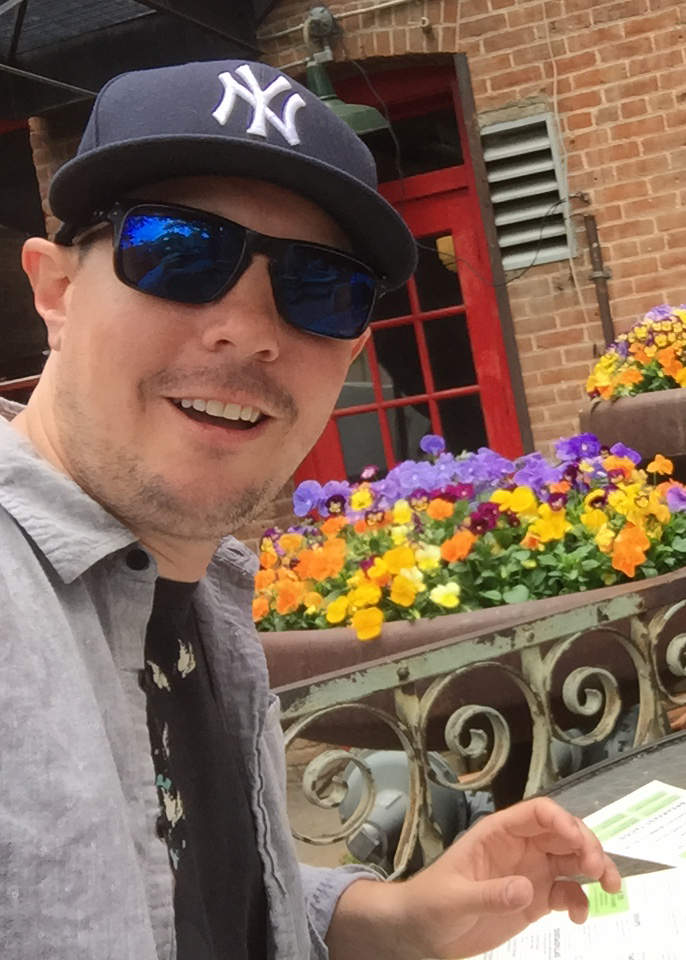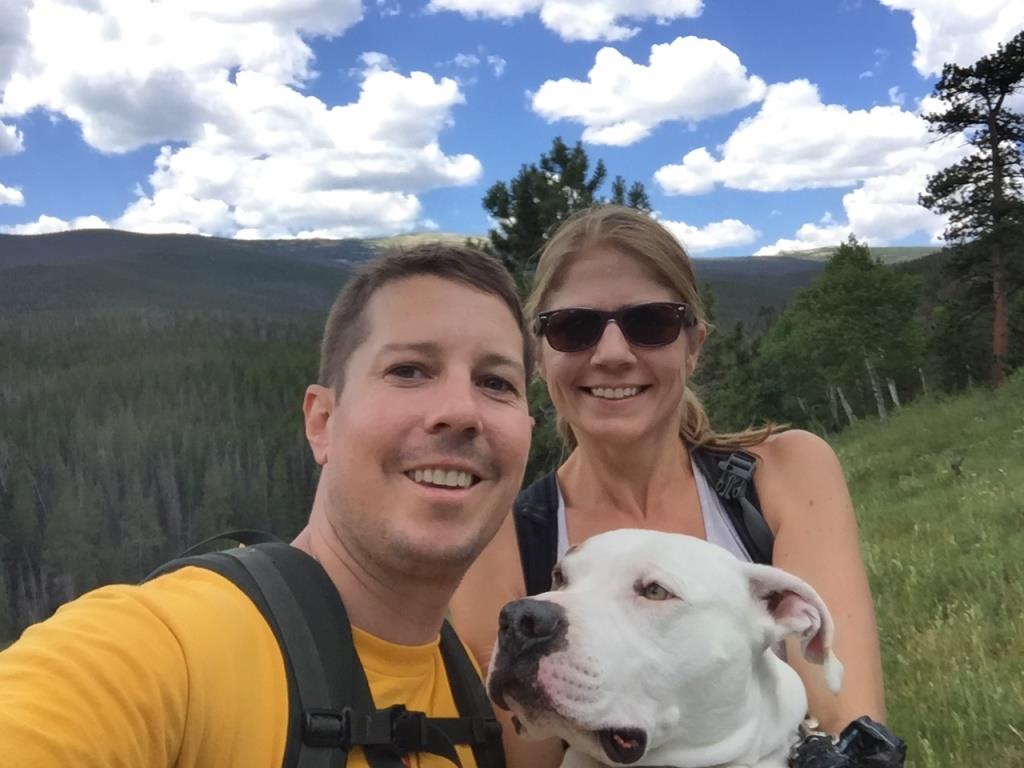~from intern Joyce Bohling
Last year, Gabe Martinez graduated from the CSU with his master’s degree in Rhetoric and Composition. Today, he works as Communications Specialist for the USDA AgLearn program. In this post, he shares some thoughts about his work and how the things he learned at CSU have stuck with him.

What is the USDA AgLearn program?
AgLearn provides all mandated training and coursework for USDA federal employees and contracted employees, which I believe is just under 130,000 people. AgLearn also acts as a system of record that digitally houses all employee training and coursework history. That is the key role AgLearn maintains, however we also provide outside training and coursework aimed at assisting professional and personal goals. So basically, we are a digital library and moodle.
What are your primary responsibilities as Communications Specialist?
My current tasks include preparing and executing a communications strategy to prepare all AgLearn users for a migration from our current learning management system to a new one later this year. I act as a conduit relaying information between my team and the USDA workforce.
How has your background in rhetoric and composition helped prepare you for the job?
Rhetoric encompasses all things communication and marketing, it just carries different terminology. Most importantly, rhetoric has shown me the importance of adaptability in my writing dependent on the audience. In rhetoric, we used terms like Kairos, where business calls it context marketing. The premise remains the same, reach people with relevant content, when they are most apt to engage in it.
What experiences as a student in the English department have been most helpful since graduating, professionally or otherwise?
This is where my education cannot be quantified, but has been influential in all segments of my life. The syllabi aspects of education carried a ton of weight in preparing me for the difficult intellectual lifting and focus needed to finish a task. However, the ‘soft’ skills I gained from being around the Rhet/Comp faculty taught me how to navigate various personalities in a respectful, generative, and progressive manner. I was fortunate to take a class with all faculty except Professor Tobi Jacobi, whom was fortunately my advisor. Therefore, allowing me access to everyone’s perspectives and personalities. As for experiences, it would be the office hours, meetings in BSB while Eddy was under construction, classes, Avo’s, and being around exceptional, humble, and talented people. That has challenged me to become a better person all around, professionally and personally.

Do you have a funny or interesting memory from when you were a grad student that you’d like to share?
Well, it’s sort of funny now in hindsight. I was unable to access my CSU email the summer before I started in the Rhet/Comp program. I received some correspondence to my personal email, but not everything. Entirely my fault, causing me to miss some important info and our introduction meeting, which I think caused some concern. However, I was welcomed regardless.
How would you respond to someone who says that English majors are unemployable, or that an English degree only prepares you to teach?
Wow, this is a loaded and insightful question. Not surprisingly, I have engaged in this conversation many times, often to no avail. The lack of avail is not from an inarticulate explanation, but instead from an audience inexperienced with the idea that education can be more than high-level vocational training. With that said, my academic experience did prepare me to teach. My colleagues that have focused on teaching are amply prepared to do so. Still, I have two English degrees, am not a teacher, and employed. The world is starving for English majors, yet they are unaware of this need. Besides being interesting, English majors offer an awareness of self, voice, and perspective, while being sensitive to corny and cliché content. Something all businesses and organizations need to focus on changing. I could go on and on why English majors are ideal in several roles outside of academia, but until we start marketing ourselves as capable and filling these spaces it will fall on deaf or already aware ears.
What one piece of advice do you have for current CSU grad students?
Okay, I get a little uncomfortable giving advice. I can only speak from experience, and say that graduate school was one of the most transformative and generative experiences in my life. It is rare to meet exceptional people, yet in grad school you have constant access to this rarity. That is powerful, and I suggest grad students take as much advantage as possible of that opportunity.